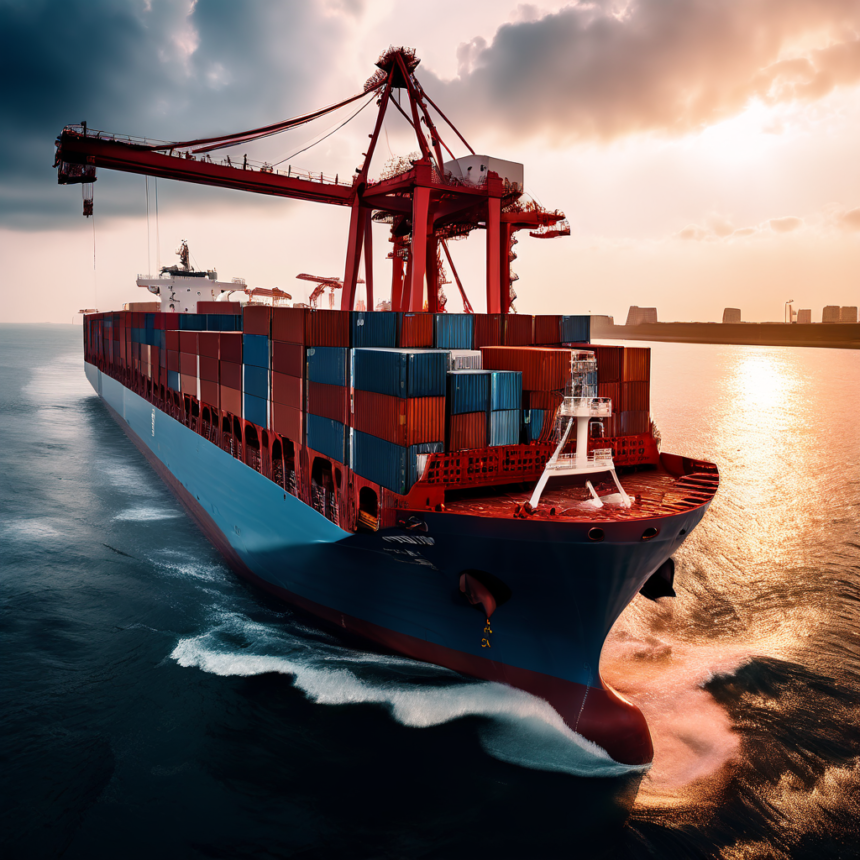Understanding Marine Cargo Insurance
Marine cargo insurance is a specialized form of coverage designed to protect goods and merchandise while in transit by sea, air, or land. This type of insurance is essential for businesses engaged in international trade, as it mitigates the risks associated with the transportation of goods. There are several types of marine cargo insurance policies available to cater to different needs.
One of the primary types is the open cover policy, which provides continuous coverage for all shipments made within a specified period, usually a year. This type of policy is particularly beneficial for businesses with frequent shipments, as it eliminates the need to arrange insurance for each individual consignment. Another common type is the specific voyage policy, which covers goods for a single, defined journey. This policy is ideal for one-time shipments or infrequent consignments. Lastly, annual policies cover all shipments made during the policy year, offering a balance between the flexibility of open cover policies and the specificity of voyage policies.
Marine cargo insurance policies comprise several key components. Coverage limits define the maximum amount the insurer will pay in the event of a loss, and deductibles represent the amount the policyholder must pay out-of-pocket before the insurance coverage kicks in. Exclusions are specific scenarios or types of damage that are not covered by the policy, such as losses due to war, strikes, or inherent vice (a defect in the goods themselves).
The concept of marine insurance dates back to ancient times, with historical records indicating its use by Mediterranean merchants as early as the 3rd century BCE. Over the centuries, marine insurance has evolved significantly to address the complexities of modern shipping and logistics. Today, it encompasses a wide range of risks, from maritime perils like storms and collisions to modern threats such as piracy and terrorism.
In conclusion, understanding the various aspects of marine cargo insurance is crucial for businesses involved in the global trade of goods. By selecting the appropriate type of policy and being aware of the coverage limits, deductibles, and exclusions, companies can ensure their shipments are adequately protected against potential losses.
The Risks Involved in Marine Transportation
Marine transportation, while essential for global trade, is fraught with numerous risks that can jeopardize shipments. One of the most prevalent hazards is weather-related incidents. Severe storms, hurricanes, and rough seas can lead to significant damage or even total loss of cargo. These natural phenomena are unpredictable, making it challenging to safeguard shipments without comprehensive marine insurance coverage.
In addition to weather-related hazards, piracy and theft remain persistent threats in certain maritime regions. Modern-day pirates equipped with advanced technology can intercept and hijack vessels, leading to substantial financial losses. Even in ports, theft during loading and unloading operations can result in the loss of valuable goods. The financial implications of such events are considerable, underscoring the importance of marine cargo insurance in mitigating these risks.
Accidents during the loading and unloading process also pose significant risks. Mishandling of cargo, equipment failure, and human error can cause serious damage to goods. These incidents can disrupt supply chains, delay deliveries, and incur additional costs for businesses. The unpredictability of these accidents highlights the need for robust insurance coverage to ensure that companies are not left vulnerable to financial setbacks.
Furthermore, the financial implications of these risks extend beyond the immediate value of the cargo. There are additional costs associated with delays, legal disputes, and potential liability claims. Without adequate insurance, businesses may face substantial financial burdens that could jeopardize their operations. Marine cargo insurance provides a safety net, allowing companies to navigate these uncertainties with greater confidence.
In conclusion, the inherent risks of marine transportation, ranging from weather-related incidents to piracy, theft, and loading accidents, make robust insurance coverage indispensable. The financial repercussions of these unpredictable events can be mitigated with the right marine insurance, ensuring that businesses can protect their shipments and maintain smooth operations.
Benefits of Marine Cargo Insurance
Marine cargo insurance offers a myriad of benefits that are crucial for businesses engaged in international trade. One of the primary advantages is the financial protection it provides. Shipping goods across oceans entails significant risks, including potential loss or damage due to natural disasters, accidents, piracy, and other unforeseen events. Marine insurance ensures that businesses do not have to bear these financial burdens alone, safeguarding their investments and promoting financial stability.
Another key benefit is the coverage for loss or damage to goods. By securing marine cargo insurance, companies can claim compensation for goods that are lost, damaged, or delayed during transit. This not only mitigates financial losses but also ensures that businesses can maintain their supply chains without significant disruptions.
Marine cargo insurance also offers protection against legal liabilities. In the complex landscape of international shipping, there are numerous legal regulations and obligations that companies must navigate. Insurance can cover legal expenses and liabilities arising from incidents such as cargo claims or disputes, allowing businesses to operate with greater peace of mind.
Furthermore, marine insurance facilitates smoother international transactions. It provides a safety net that reassures both buyers and sellers, fostering trust and reducing potential conflicts. This, in turn, can enhance the efficiency and reliability of global trade operations, allowing businesses to expand their reach and build stronger international partnerships.
Lastly, having marine cargo insurance can significantly enhance a company’s credibility and reliability. Clients and partners are more likely to engage in business with companies that have robust risk management strategies in place. Insurance demonstrates a commitment to safeguarding shipments and ensures that companies can uphold their contractual obligations even in adverse situations.
Choosing the Right Marine Cargo Insurance Policy
When it comes to selecting the most suitable marine cargo insurance policy, careful consideration and thorough evaluation are crucial. The importance of marine cargo insurance cannot be overstated, as it provides essential protection against the numerous risks associated with maritime transport. To begin the process, it is imperative to evaluate different insurance providers. Look for companies with a strong reputation, extensive experience in marine insurance, and a proven track record of handling claims efficiently. Comparing quotes from multiple providers can also provide insights into the range of coverage options available and help identify competitive pricing.
Understanding the terms and conditions of a policy is another critical step. Policies can vary significantly in terms of coverage limits, exclusions, and deductibles. It is essential to read the fine print carefully and seek clarification on any ambiguous clauses. Pay particular attention to the types of risks covered, such as natural disasters, piracy, or damage during loading and unloading. Additionally, consider whether the policy offers coverage for both the cargo and the vessel, if applicable, and whether it includes provisions for goods in transit by other means, such as rail or truck, before and after the maritime leg.
Assessing the specific needs of your business is equally important. Different industries and cargo types may require tailored coverage. For instance, high-value goods or perishable items may need specialized insurance solutions. Engaging with experienced brokers or agents who specialize in marine cargo insurance can provide invaluable assistance. These professionals can offer expert advice, help negotiate better terms, and ensure that the policy aligns with your business’s unique requirements.
Common pitfalls to avoid include underinsuring cargo, overlooking exclusions, and failing to update the policy as business needs evolve. Best practices for ensuring comprehensive coverage involve regular policy reviews, accurate valuation of cargo, and maintaining open communication with the insurer. By taking these steps, businesses can safeguard their shipments effectively, mitigating the financial risks associated with maritime transport.








